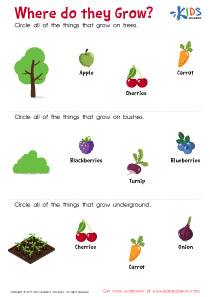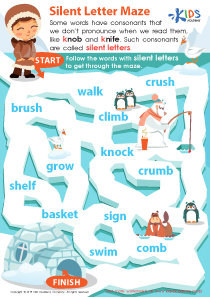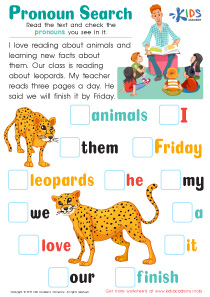Normal Basic English Conventions Quizzes for 6-Year-Olds
1 results
1 filtered results
Clear all filters1 filtered results
-
From - To
Dive into the world of language with our Normal Basic English Conventions for 6-Year-Olds interactive assessment quizzes! Tailored specifically for young learners, these quizzes offer a vibrant and engaging way to explore the foundational aspects of English. From punctuation and capitalization to simple sentence construction, our quizzes provide immediate feedback to reinforce learning in a positive and encouraging manner. Perfect for 6-year-olds, these quizzes help build confidence and lay the groundwork for effective communication skills. Join us on this exciting journey to mastery in Basic English Conventions, and watch your child's knowledge flourish!
In today's dynamic educational landscape, the importance of a solid foundation in language cannot be overstated. Given this, Normal Basic English Conventions for 6-Year-Olds stand out as a particularly effective tool for young learners. These interactive quizzes are designed not only to engage but also to enhance children's grasp of the English language, laying a strong foundation for their future academic and personal growth.
Understanding the basics of English conventions at an early age is crucial. It encompasses grammar, punctuation, spelling, and sentence structure—elements that are foundational to effective communication and literacy. For 6-year-olds, who are at a critical stage of cognitive and linguistic development, interactive quizzes offer a unique blend of learning and play, making the acquisition of these skills both enjoyable and impactful.
The Normal Basic English Conventions for 6-Year-Olds are particularly helpful to children in their studies for several reasons. Firstly, they cater to the developmental needs of young learners. At the age of six, children are developing their reading and writing skills, and their attention spans are growing. However, they still benefit greatly from interactive and engaging activities that capture their interest. The quizzes are designed to be visually appealing and user-friendly, ensuring that children remain engaged and motivated throughout the learning process.
Secondly, the quizzes offer personalized learning experiences. Children can proceed at their own pace, allowing them to fully grasp each concept before moving on to the next. This self-paced approach reduces frustration and builds confidence, as learners are not pressured to keep up with their peers. Furthermore, immediate feedback is provided, allowing children to understand their mistakes and learn from them in real-time.
In addition to reinforcing basic English conventions, these quizzes also enhance cognitive skills such as memory and problem-solving. As children navigate through the quizzes, they are not only learning English conventions but also developing critical thinking skills. They learn to analyze questions, recall information, and apply their knowledge in various contexts.
Moreover, the quizzes serve as an excellent supplement to traditional classroom learning. They can be used both in school and at home, providing continuous learning opportunities. Parents and teachers can track progress and identify areas where additional support may be needed, allowing for targeted interventions that ensure no child falls behind.
Finally, the early mastery of Normal Basic English Conventions sets children up for long-term academic success. Proficiency in language arts is a cornerstone of nearly all areas of study. Children who are confident in their language abilities are more likely to excel in reading, writing, and beyond. They are also better equipped to communicate effectively, think critically, and engage creatively, skills that are invaluable in both academic settings and life.
In conclusion, Normal Basic English Conventions for 6-Year-Olds, through their interactive quizzes, provide an essential, foundational learning tool. They make the acquisition of basic English skills engaging, effective, and tailored to the developmental needs of young learners. By incorporating these quizzes into their study routines, children are set on a path toward linguistic proficiency and academic success, equipped with the knowledge and skills needed to thrive in an ever-evolving world.













